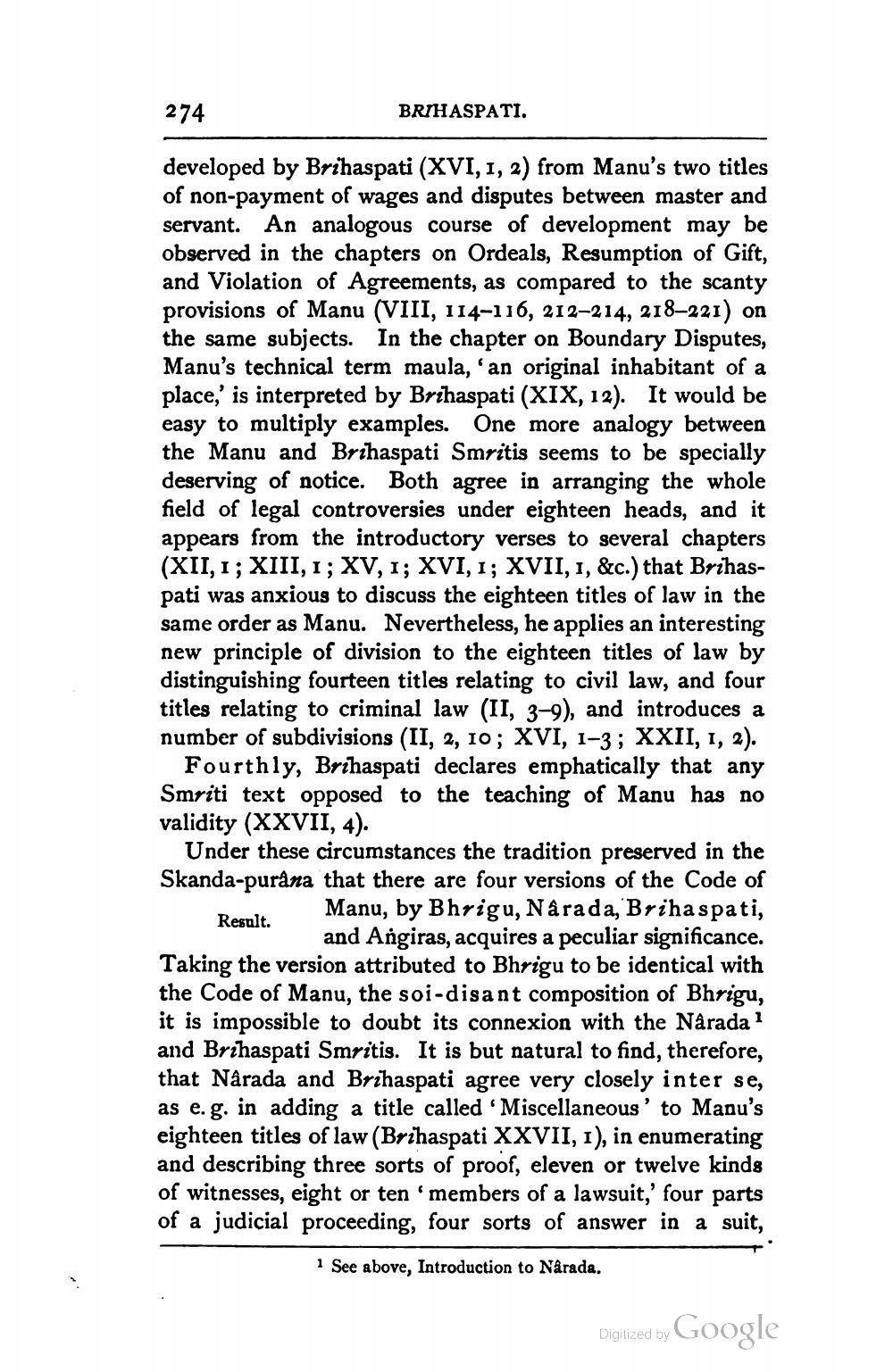________________
274
BRIHASPATI.
developed by Brihaspati (XVI, 1, 2) from Manu's two titles of non-payment of wages and disputes between master and servant. An analogous course of development may be observed in the chapters on Ordeals, Resumption of Gift, and Violation of Agreements, as compared to the scanty provisions of Manu (VIII, 114-116, 212–214, 218–221) on the same subjects. In the chapter on Boundary Disputes, Manu's technical term maula, an original inhabitant of a place,' is interpreted by Brihaspati (XIX, 12). It would be easy to multiply examples. One more analogy between the Manu and Brihaspati Smritis seems to be specially deserving of notice. Both agree in arranging the whole field of legal controversies under eighteen heads, and it appears from the introductory verses to several chapters (XII, 1; XIII, 1; XV, 1; XVI, 1; XVII, 1, &c.) that Brihaspati was anxious to discuss the eighteen titles of law in the same order as Manu. Nevertheless, he applies an interesting new principle of division to the eighteen titles of law by distinguishing fourteen titles relating to civil law, and four titles relating to criminal law (II, 3-9), and introduces a number of subdivisions (II, 2, 10; XVI, 1-3; XXII, 1, 2).
Fourthly, Brihaspati declares emphatically that any Smriti text opposed to the teaching of Manu has no validity (XXVII, 4).
Under these circumstances the tradition preserved in the Skanda-purana that there are four versions of the Code of
Manu, by Bhrigu, Narada, Brihaspati, Result.
and Angiras, acquires a peculiar significance. Taking the version attributed to Bhrigu to be identical with the Code of Manu, the soi-disant composition of Bhrigu, it is impossible to doubt its connexion with the Nárada? and Brihaspati Smritis. It is but natural to find, therefore, that Narada and Brihaspati agree very closely inter se, as e.g. in adding a title called 'Miscellaneous' to Manu's eighteen titles of law (Brihaspati XXVII, 1), in enumerating and describing three sorts of proof, eleven or twelve kinds of witnesses, eight or ten 'members of a lawsuit,' four parts of a judicial proceeding, four sorts of answer in a suit,
1 See above, Introduction to Narada.
Digitized by Google




